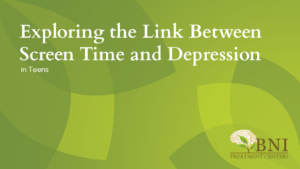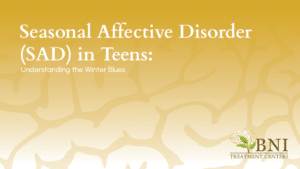As parents, you may have done everything right, by the book, in raising your child. You have provided a safe, loving, and supportive home life and made every effort to be available for your son or daughter. In fact, in many instances, other siblings—born of the same two parents and raised in the same home—may have no emotional or behavioral issues at all. So, what went awry with this child?
The fact is that each child is a totally unique person, with his or her own DNA, temperament, and personality traits. Regardless of the environment in which they are reared, each child is wired in their own special, individual way. Each child responds to life events, happy, sad, or traumatic, in a way that is dictated by factors often unseen.
Parents may feel stupefied as they observe their teen acting out disruptively or engaging in self-destructive behaviors. Their teen seems to have a lack of impulse control that is leading to mounting negative consequences, meanwhile parents feel hamstrung. When a teen seems to be careening off course and no interventions have yet helped change the destructive path he or she is on, considering residential behavioral treatment centers for adolescents is a timely option.
Why Consider Behavioral Treatment Centers for Adolescents?
Your teen may have already received various interventions in response to their disruptive behaviors. Possibly the teen has received a DUI or has a substance abuse problem. Maybe the teen has been suspended from school, or even expelled, due to truancy, breaking rules, or being disrespectful to authority figures. The teen may be constantly causing chaos and disruption in the home environment. Your teenager may be acting out in ways that are violent or abusive to others, or may pose a threat to his or her own welfare.
When all therapeutic, punitive, or corrective measures have failed to exact a change in outward behaviors, that is the time for considering a residential treatment program. These programs offer a more intensive approach to treatment based on a thorough psychological evaluation, various assessments, an interview with the parents and the teen, and a complete review of the adolescent’s medical and psychological history. Based on this data, the residential program can design a very focused approach to treating the teen, a significant step up from outpatient care.
Possible Causes of Disruptive Behaviors
Teens with behavior problems are sometimes the product of being a child with untreated or unaddressed behavior issues, such as a conduct disorder, ADHD, or oppositional defiant disorder. The signs of emotional instability may have been ignored or denied and now have become more serious, with much more severe consequences than when they were kids. Other teens may have functioned normally during early childhood and pre-adolescence, only to develop problems due to social issues, bullying, substance abuse, hormonal fluctuations, or an acquired mood disorder.
There are an infinite number of reasons why a teen may have behavioral problems. Some of the reasons are due to the following factors:
- Genetics. A family history of mood disorders or mental instability
- Trauma. Physical or sexual abuse or neglect
- Biological. Certain personality traits, temperaments, lack of impulse control, difficulty managing stress, a learning disability
- Environmental. Parents divorcing, sudden loss of a parent or loved one, moving to a new community and school
- Mental illness. An undiagnosed mental health disorder, such as anxiety, depression, bipolar disorder, borderline personality disorder
When is it Time For Behavioral Treatment Centers for Adolescents?
Teens suffering the consequences of their problem behaviors are often open to receiving help. No one enjoys being in constant trouble at school, at home, or with the law. Generally, the sooner that the behavioral issues are identified and treated, the better the treatment outcome and the more contained the fallout from them. For example, the teen may be experimenting with drugs and alcohol, something with potentially severe consequences if left untreated.
Parents who are at their wits end after trying in vain to help their at-risk son or daughter with problem behaviors, with or without professional help, may need to consider a more intensive treatment approach to the problem. A residential treatment center provides the teen with an opportunity to escape the situations or people who trigger the maladaptive behavior long enough to learn new, healthy responses to the stressors. If a mental health disorder is diagnosed, a residential program can help stabilize the condition and, through various therapies, teach the teen how to manage the symptoms.
Residential Behavioral Treatment for Teens
A teen with a serious behavioral or emotional disorder will benefit from the more focused treatment intervention and support found at a residential program tailored for adolescents. Many of these programs offer academic tutors and liaisons that help keep the teen engaged in their classwork while in treatment. Also, a residential treatment program designed for teens will adapt the therapeutic activities to this age group, making it more relatable to them.
While the teen is at the treatment center they will engage in various behavior therapies, such as cognitive behavioral therapy (CBT), dialectical behavior therapy (DBT), solutions focused therapy, and mindfulness cognitive behavioral therapy to help them replace maladaptive behavioral responses to stressors with healthy, constructive responses. With these tools, the teen will learn how to better navigate sources of frustration, anger, or stress moving forward.
BNI Treatment Centers Leading Residential Treatment for Teens
BNI Treatment offers residential behavioral treatment centers for adolescents in the Los Angeles region. At BNI Treatment Centers the doctors’ emphasis on specifically tailoring treatment to address each teen’s unique needs sets our program apart. With decades of training and experience with adolescents in distress, our doctors and clinicians understand that teens will simply tune out anything that they do not connect with personally.
With a multi-dimensional approach to treating teen behavioral problems, BNI can blend experiential activities with the evidence-based therapies for a treatment plan that resonates with the adolescent and provides an optimal recovery result. BNI Treatment Centers offers treatment for an array of conditions, including acute stabilization, medical detoxification and addiction treatment, and treatment of mental health disorders. For more information about the program, please contact BNI Treatment Centers today at (888) 522-1504.



